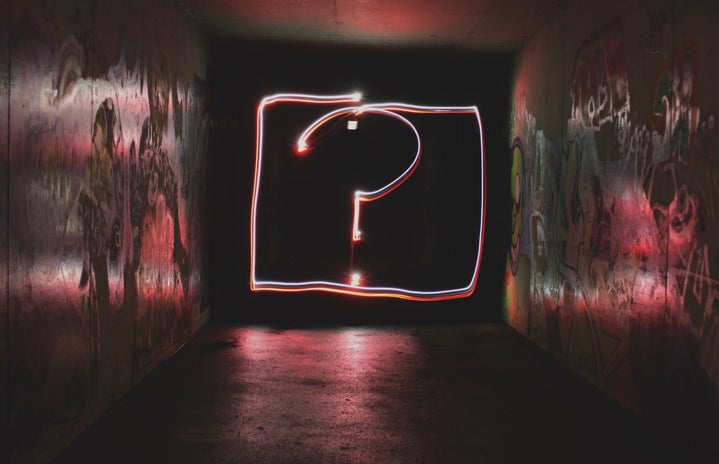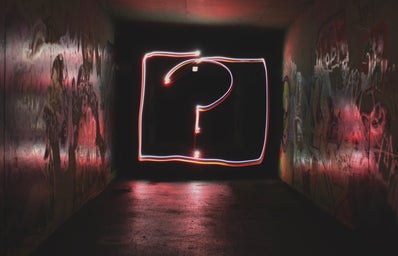In light of World Mental Health Day and OCD Awareness Week, I find myself revisiting a conversation I witnessed between an adult and a child about six months ago. I find it highly unlikely that either of them remember it, but it has stayed with me since.
The adult described themselves and their behaviour to the child as being ‘OCD’ and naturally, having not come across the term before, the child was curious and asked them what that meant. They replied, explaining OCD (Obsessive Compulsive Disorder) in terms of neatness and perfectionism, words that made my heart sink slightly because a teaching opportunity had been missed. The child didn’t learn about a mental health condition that day, they were taught a new adjective. A shorthand for being ‘neat’ or ‘tidy’ that would never make sense in full: ‘I’m so Obsessive Compulsive Disorder’.
An important point to raise here is that the conversation wasn’t marked with any nastiness or disrespect. The person wasn’t callous, the adult was in fact, an intelligent, perceptive individual for whom I have a great deal of respect. Do I blame them for what was said? No, because at some point they too were introduced to the idea of OCD as an adjective, not a reality. Their explanation was emblematic of a wider issue surrounding the huge misconceptions and misrepresentations surrounding OCD that are played out every day. Comments that aren’t meant maliciously but ones that come from a place of misunderstanding, which can’t be redressed through assigning blame but through providing education.
To truly answer the question at hand, the NHS describes OCD as ‘a common mental health condition where a person has obsessive thoughts and compulsive behaviours.’ Sufferers experience obsessive, often debilitating, thoughts, doubts, or worries that they feel compelled to act on, engaging in specific behaviours or rituals in an attempt to obtain some kind of relief from the relentless thoughts they are plagued by. The areas of life that OCD can affect are almost limitless. OCD UK explains how sufferers can find themselves fixated on issues of contamination or feel the need to ‘check’ things, it can also lead people to question their relationships and sexuality. While I’m unable to do justice to all the different forms OCD can take and the medical nuances of the disorder, topics much better left to health professionals, what I can explain is what it means to me and why those misconceptions can be so damaging.
I’m a chronically untidy person, my bookshelf isn’t alphabetised, and I’d probably be more unsettled by the sight of my wardrobe being organised than not. I do, however, count sequences of numbers in my head. I’ll ask whether a certain feeling in my arm is normal or not. I’ll retrace my steps or put my foot back down on the floor until it feels ‘right’. I used to take screenshots of the time of night on my phone before I went to sleep.
I didn’t enjoy having a camera roll full of photos of my lock screen but there was always the chance that I might wonder what the time was when I went to sleep and I wouldn’t be able to remember and that question might haunt me forever. I don’t enjoy asking someone for the sixth time in a day whether they think I’m healthy but if I told myself it was probably fine I could be ignoring a key symptom of something which would be disastrous. I don’t enjoy those things but I’m scared of the voice that whispers: ‘what if?’
A primary characteristic of OCD is doubt, that something may be a problem or may happen, a lack of certainty is torturous. You’re always taught in life the person you can always trust and rely on is yourself. The ever dependable being you are. Yet, through OCD, people are robbed of that certainty, drawn into an eternal debate with your own mind that makes you doubt the most fundamental truths about yourself.
I can’t be alone or stay unoccupied for too long, for either is liable to invite unwanted thoughts or worries in to fill the empty space. A news story of a celebrity experiencing a rare, complex health condition, something that may cause others to fear for their own health for a moment, then rationally file away, will stay with me for years, rearing its head in the form of a doubt over slight headache or brief muscle pain.
Why does all this matter?
Because OCD isn’t an adjective. It isn’t a quirk or a personality trait. It’s not a synonym for ‘neat’ or ‘tidy’. It’s a mental health condition. A reality endured by many, being bullied from within. For some with OCD, it is inseparable from organising and cleaning, not through want or desire but compulsion. Driven by the voice that says: ‘what if?’ The fear of the consequences if the compulsion isn’t carried through.
Not only does the use of OCD as an adjective diminish the experience that 1.2% of the UK population endure every day, it also makes conversation harder.
The term is often used so haphazardly, that on hearing someone refer to themselves as having OCD, I dismiss it out of habit. I assume they’re referring to themselves as being tidy and think no more of it. I wonder how many conversations with other people who really ‘get it’ I’ve missed from assuming they’re not using the term the same way I am. It becomes almost impossible to establish connections and community with people in the same position when the definitions we’re working from all seem so different. No one should have to bare the secrets of their soul before realising they’re with someone who can truly understand.
It’s not about perfection but awareness. No one chooses the right words every time and OCD is just one of many conditions where the term is often taken out of context and used incorrectly. So if you’re ever looking for an adjective, it’s best to pick a thesaurus up and put the medical dictionary down–a lot of people like me will thank you for it.

